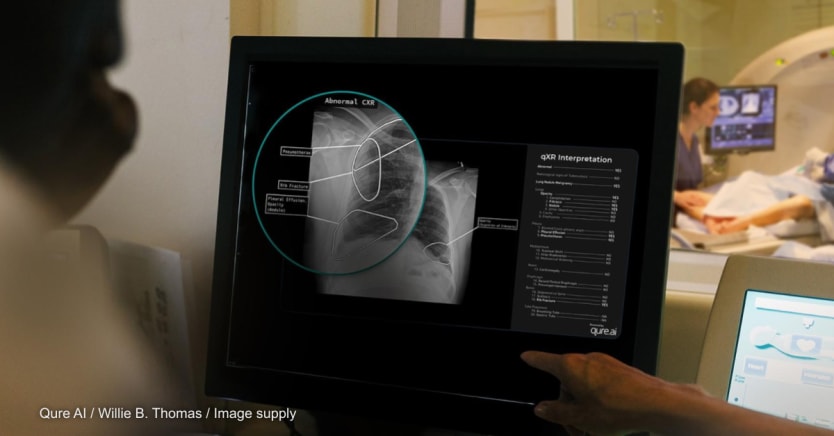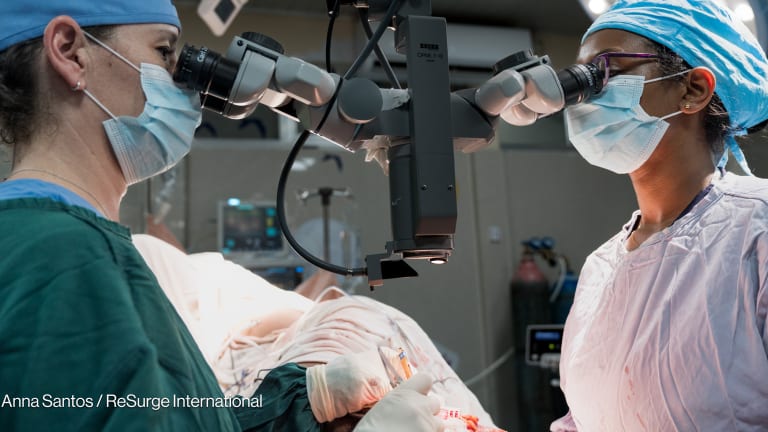
Last month we were in Chicago for the annual meeting of one of the most important events in the oncology calendar: the 2022 American Society of Clinical Oncology Annual Meeting. We live in a truly exciting time for cancer treatments. The breadth of clinical developments is extraordinary. But as exciting as these advancements are, the truth is it will take so much more than innovation in medicines to reduce deaths from cancer.
We must break through the barriers of access and inequality to deliver cancer care to those who need it the most. We cannot do this alone — it takes powerful partnerships to save lives. Now, more than ever before, we must work together, across industries and borders, with urgency and one shared goal: to build health care systems that improve equality across early diagnosis, access to care, and access to treatment.
Where you live can make all the difference
If you live in a wealthy part of the world, chances are you have access to comprehensive cancer treatment. In fact, it’s available in more than 90% of high-income countries. Now consider that the same quality of treatment is available in less than 15% of low- and middle-income countries — the inequality in cancer care is painfully obvious. Where you live determines if you live. This shouldn’t be the case.
As a global cancer community, we must continue to address the challenges we face … with an ultimate goal: a world where the place you live does not dictate if you live.
—Most of the world’s population live in LMICs, which accounted for approximately 70% of the 10 million cancer deaths in 2020. Lung cancer, for example, is the leading cause of cancer death worldwide and survival rates in LMICs lag far behind high-income countries. Breast cancer five-year survival rates are over 80% in most high-income countries, but that drops to 66% in India and 40% in South Africa. The World Health Organization also reports that the gross inequality is also reflected in the survival rates of children diagnosed with cancer, which is more than 80% in high-income countries but less than 30% in LMICs.
This kind of disparity is seen across all cancer types and is the shocking reality of the global cancer burden which is estimated to reach 28.4 million people in 2040, a 47% rise from 2020. Urgent action is needed to avoid this health care time bomb.
It will take health care champions to save lives
As leaders in oncology, AstraZeneca has an immense responsibility to address the unique barriers in cancer diagnosis and treatment, as well as build capacity that helps to make our innovations accessible and affordable to all our patients, especially in LMICs.
Only by joining forces with other global health care stakeholders can we achieve our goal of reducing the glaring gaps in equitable care. By driving early detection, diagnosis, and treatment, we can transform the outcomes of cancer patients in LMICs. No one can do this in isolation.
So how do we do it?
In order to increase the chances of a cure, it starts with investing in capabilities that improve early screening, detection, and diagnosis. Diagnosing as early as possible and commencing treatment in as timely a way as possible is key to improving survival.
Our partnership with Qure.ai, an artificial intelligence health tech company, as part of our Lung Ambition Alliance leadership, is just one example of how we are improving earlier diagnosis.
Our AI partnerships are active in more than 30 countries and have allowed screening of more than 250,000 people through AI-based X-ray and CT scans.

We are continuing to expand this program and have committed to screen 5 million patients globally by 2025 as part of our World Economic Forum EDISON Alliance commitment. The alliance is an unprecedented public-private partnership that aims to improve the lives of 1 billion people through access to health and education by 2025. It is exactly this kind of collaboration, bringing together almost 50 leaders from the public and private sectors, that will make the much-needed change in cancer care happen.
Earlier this year, we marked the launch of Accelerating Change Together for Cancer Care, a new coalition of technology, policy, research pioneers and government stakeholders, which seeks to drive equitable access to innovative treatments and screening programs to detect cancer earlier. We’re also proud to play a part in the Access to Oncology Medicines Coalition, which brings together a broad spectrum of health care leaders across the sector to build capacity for cancer diagnosis and treatment. It is this kind of collaboration that will allow us to truly redefine cancer care.
Driving vital access for patients is the responsibility of us all
It is the collective role and responsibility of everyone in the health care ecosystem, including pharmaceutical companies, health care providers and governments, to collaborate and tackle the global challenges of health equality in cancer care. The industry needs to work in parallel with all relevant health care players. We must meet each other halfway when it comes to improving the oncology ecosystem for all.
As a global cancer community, we must continue to address the challenges we face today — and those of the future — with an ultimate goal: a world where the place you live does not dictate if you live.









